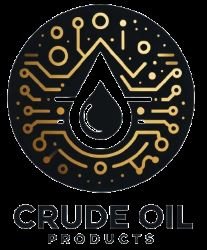When it comes to the world of commodities trading, crude oil is undoubtedly one of the most important and sought-after resources. As the lifeblood of the global economy, the demand for crude oil continues to grow, making it a lucrative market for investors and traders alike. One way to participate in this market is through crude oil brokerage. In this introductory guide, we will explore what crude oil brokerage is and how it works.
What is Crude Oil Brokerage?
Crude oil brokerage is a specialized form of brokerage that focuses on facilitating the buying and selling of crude oil between buyers and sellers. The role of a crude oil broker is to act as an intermediary, connecting buyers and sellers and helping them negotiate and finalize transactions. The broker earns a commission or fee for their services.
Crude oil brokers play a crucial role in the oil industry by providing market access and liquidity. They have in-depth knowledge of the oil market, including pricing trends, supply and demand dynamics, and regulatory requirements. This expertise allows them to assist clients in making informed decisions and navigating the complexities of the crude oil market.
How Does Crude Oil Brokerage Work?
Crude oil brokerage involves several key steps, starting with the identification of potential buyers and sellers. The broker uses their network and market knowledge to connect with individuals, companies, or institutions interested in buying or selling crude oil.
Once a potential match is found, the broker facilitates the negotiation process. This includes discussing the terms and conditions of the transaction, such as the quantity and quality of the crude oil, the price, and the delivery terms. The broker acts as a trusted advisor, helping both parties reach a mutually beneficial agreement.
Once the terms are agreed upon, the broker assists in the preparation of the necessary documentation, such as contracts and invoices. They ensure that all legal and regulatory requirements are met, minimizing the risk of disputes or non-compliance.
After the transaction is finalized, the broker continues to provide support by monitoring the delivery process and resolving any issues that may arise. They act as a bridge between the buyer and the seller, ensuring a smooth and efficient transaction.
The Benefits of Using a Crude Oil Broker
Using a crude oil broker offers several benefits for both buyers and sellers:
Market Expertise: Crude oil brokers have a deep understanding of the oil market and can provide valuable insights and guidance to their clients.
Access to a Network: Brokers have extensive networks of buyers and sellers, allowing them to quickly connect parties and facilitate transactions.
Negotiation Skills: Brokers are skilled negotiators who can help clients secure the best possible terms and prices.
Efficiency: By handling the administrative and logistical aspects of the transaction, brokers save clients time and effort.
Reduced Risk: Brokers ensure that all legal and regulatory requirements are met, reducing the risk of disputes or non-compliance.
Conclusion
Crude oil brokerage is a vital component of the global oil market, enabling buyers and sellers to connect and transact efficiently. By leveraging their market expertise and networks, crude oil brokers play a crucial role in facilitating the smooth flow of oil and ensuring that transactions are conducted in a fair and transparent manner. Whether you are a buyer or a seller, partnering with a reputable crude oil broker can help you navigate the complexities of the market and achieve your goals.
